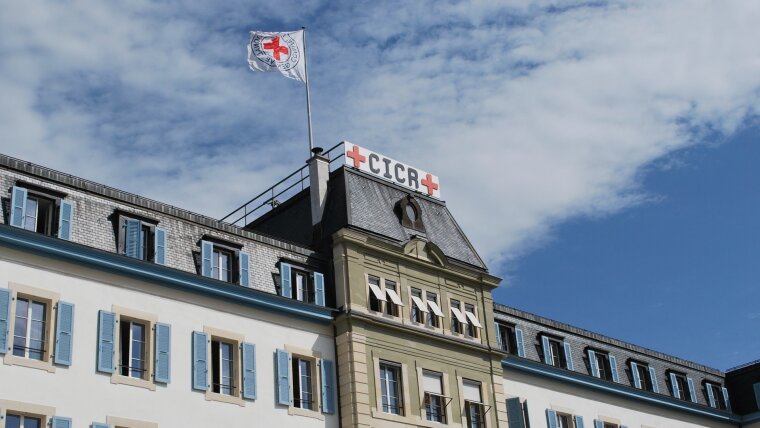
We expect you to do an internship during your studies. The goal is to gain practical insights into the work of international governmental and non-governmental organisations, national administrations and think tanks involved in crisis management. You will apply the skills and knowledge acquired during your studies to political practice and test their viability. It is a reality check. Two of the most well-known authors on international organisations, Michael Barnett and Martha Finnemore, who worked at the UN and the World Bank found that “our graduate school training had not prepared us for what international organisations were really like.” In fact, “we were seeing things on the ground in these organisations that were rarely discussed in the academic literature.” This is what we want to avoid. We strive for an empirically grounded study programme that will prepare you for working in an international environment.
IOCM-Internship
The internship module (IOCM 800) is offered every semester and is expected to last at least eight weeks (300 hours; 10 ECTS). Internships in our programme typically involve working for an international governmental or non-governmental organization, think tank or national/regional ministry. The aim of the internship module is to gain insights into the functioning of international organizations, to learn about crisis management in action, and to apply theoretical knowledge in practical contexts. While it is recommended to use the study abroad semester for the internship, students can also choose another semester to complete their internship requirement. We also invite you to think about linking the internship experience to the substance of your master's thesis.
Internship Application
As part of our internship guidance and support, we provide of a pool of possible internship positions in various organizations, e.g. the Organization for Security and Cooperation in Europe (OSCE, Vienna), the European Center for Minority Issues (ECMI, Flensburg), and the Global Governance Institute (GGI, Brussels). However, applications remain entirely in the student’s responsibility. Students may also look for internship opportunities on their own, bearing in mind that the internship positions need to correspond to the goals of the IOCM programme. Applicants should first consult with the Internship Coordinator (see below) to confirm that the internship position is relevant for the study programme. The list of possible internships can be found in the password-protected IOCM student area on the IOCM website.
Certificate of Mandatory Internship
Some institutions require a certification that the internship is compulsory or that the student is enrolled at the university. Such a template exists in the password-protected IOCM student area on our website or can be received upon request from the Internship Coordinator.
Financing of the internship
Information on funding opportunities for internships abroad can be found here.
Internship report
After the internship, a report must be written to reflect on the work experience. The report should contain about 4-5 pages of written text (excluding cover sheet and confirmation of internship performance). If you have completed more than one internship, please write a separate report of approx. three pages for each institution.
The report should contain information on the following aspects:
- Description of the institution/organisation (field of work, self-image, objectives, etc.)
- Description of the department or the concrete area of assignment (specific field of work, integration of the field of activity into the institution, staffing)
- Description of the internship (completed tasks, involvement in individual projects, participation in events, type of supervision)
- Reflection on the significance of the IOCM programme in the respective context, or critical assessment of the significance of the internship in one's own course of study
The formal design of the internship report should be in accordance with the guidelines for academic papers (the "Guide for writing papers and theses in political science and political didactics" can be found here).
Confirmation of the completed internship
Besides the report, it is imperative that you submit an official internship confirmation or work certificate by the host institution including the number of work hours performed. The internship contract is not sufficient for recognition.
Leave of absence for the internship
You can apply for a semester on leave for your internship. According to the module catalogue, we recommend to do the internship in the lecture-free period, but some organisations/institutions may wish to allocate internships on a quarterly basis (i.e. January-March; April-June; July-September; October-December) or host interns for other/longer periods.
A semester on leave for the internship is generally possible. Please note: To be eligible for a leave of absence, the internship must extend at least six weeks into the lecture period. The application for a leave of absence must be submitted to the Student Service Centre after it has been approved by the institute. Further information and the required application form can be found here.
Recognition of comparable work
It is generally not possible to recognise comparable work experience towards completion of the internship.
IOCM Internship Guide
The complete Internship-Guide can be downloaded herepdf, 145 kb · de.
Carl-Zeiß-Str. 3
07743 Jena Google Maps site planExternal link